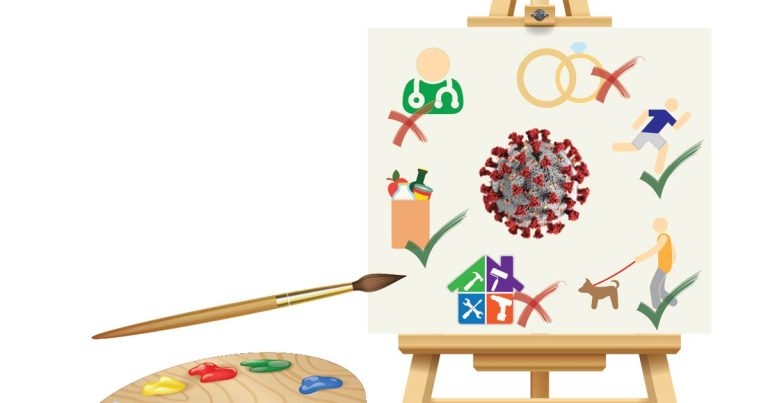25 May 2020
In her latest diary, Nat Scoggie explains how what she knows about triage has stood her in good stead in other aspects of lockdown life.

As COVID-19 spread across the globe, life gradually – then suddenly – distorted.
Nothing was as it was before, and everything was unbelievable. The ground was quicksand, and across the world we collectively scrabbled to find our footing.
When prime minister Boris Johnson announced lockdown, I remember sitting on the sofa with my fiancé in total shock – even though it was not unexpected.
Yet, looking back to those early pandemic days, I realise what a head start we had as veterinary professionals. Not only are we trained in epidemiology, biosecurity, immunology and health care, but we are practised in the art of triage.
The word triage comes from the French “trier”, which means “to sort”. The concept was quickly applied to mass casualty situations, particularly within warfare.
I am not just talking about choosing which patients we see in our clinics; previously benign daily tasks – such as fetching milk or walking the dog – must now also be triaged.
Our training gave us the tools to cope in a crisis, and a practice run at picking between essential and non‑essential.
Before all of this, I would have said I had lots of things that were important to me: spending time with friends and family, starting a new career as a locum vet, designing our house renovation, and planning our wedding in August and looking forward to a marriage together.
As the pandemic hit, my emergency brain fired up. The world became black and white; important and not important. I was quick to triage my own lockdown problems as not important – in the grand scheme of things.
It is a useful skill to see the big picture; to zoom out from your own bubble, and appreciate both the good and bad in your life within a wider context.
I have spent a lot of time over the past few weeks practising gratitude. I have felt unbelievably thankful for my garden, my partner, a good internet connection, and tech‑savvy friends and family.
My triage skills and big‑picture thinking helped me cope when everything was spinning.
But now the dizziness has started to ease, I wonder if my vet brain is still being helpful.
Maybe it was unkind on myself to throw so many things into the “not important” pile so readily; to not give myself the space to feel sadness or grief for the things I lost, whatever the grand scheme of things might be.
Of course, it is okay to miss friends and family, worry about fledgling career plans and financial uncertainty, and feel sad about cancelling your wedding.
As a profession, we are used to coping in a crisis and showing compassion, while keeping our own emotions at bay. We also know these mindsets contribute to compassion fatigue and mental health problems.
I have written before about showing yourself kindness, and this comes in a multitude of shapes. Some days, having self-compassion means making yourself get out there to do that run. Other days, it is remembering it is okay to spend the day in a duvet cave watching Netflix, if that is what you need.
As it becomes clear that COVID‑19 is going to be in our lives for a while longer yet, try to let your emergency brain unwind. Slow down enough to notice how you feel, and give yourself the space and kindness to process that without comparison or justification.
Not every thought or emotion needs to be immediately triaged – just some of them, until you are ready to let them go.